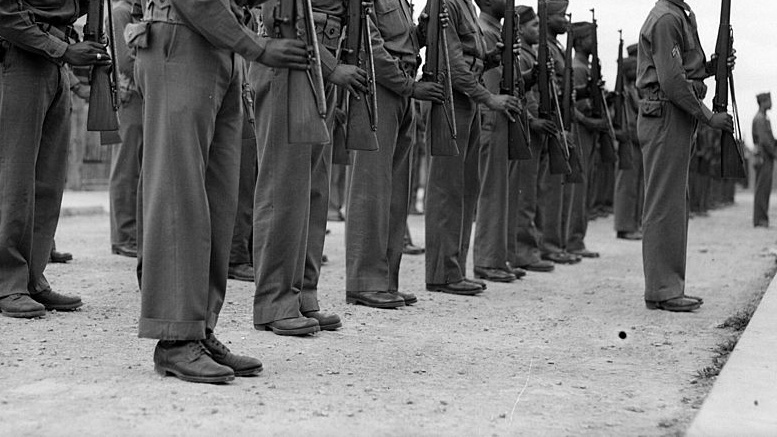South Texas College of Law Houston, the local chapter of the NAACP and supporters are seeking clemency for 110 Black soldiers who were sentenced for inciting a riot and committing mutiny while stationed at a military camp in Houston in 1917.
An assembly of attorneys are fighting to pardon the Black soldiers of the Third Battalion of the U.S. Army's 24th Infantry Regiment, the Houston Chronicle reports.
They intend to request the secretary of the army to issue honorable discharges posthumously and for the Army Board for Correction of Military Records to advocate for clemency of the soldiers to President Joe Biden.
The soldiers were sentenced to executions or handed extensive prison terms.
“We are on a quest to obtain justice for the 24th Infantry Regiment, that organized group of men who died with shameful reputations at the hands of those who had the power of the government, the courts and the power of the media,” Bishop James Dixon, board president of the NAACP Houston Chapter, said, according to the Houston Chronicle.
On Aug. 23, 1917, the military unit revolted in Houston. The riot was sparked after a white Houston police officer accused a Black woman of concealing a wanted man. An enlisted soldier from the Third Battalion defended the woman and was beaten by the police officers. Once the soldier was released from jail, it is rumored that he was killed.
Soldiers in the all-Black regiment were allegedly encouraged by members of their regiment to storm the police station. Some soldiers also heard that an indignant white crowd was making their way to the camp. During the time, the soldiers were located within a hostile town that was governed by Jim Crow laws.
Law enforcement documented the occurrence as a deliberate assault by Black Army soldiers on white residents. However, historians discovered and acknowledged that the riot was prompted by the regiment's response to the violent white mob.
When the riot transpired, 19 people died, which included four Black soldiers and 15 white citizens, according to an essay written by the great-niece of one of the 24th Infantry soldiers hung for their alleged participation.
“For the Camp Logan soldiers who were convicted in the absence of due process, and particularly for those who then were executed as the result of those wrongful convictions, the denial of justice can never fully be undone,” Michael F. Barry, South Texas College of Law Houston president and dean, said.
Critics argue that the Black soldiers defied commands and left their posts fully armed, however, supporters of the soldiers said they were not given due process and had to participate in a hasty court-martial proceedings. Supporters also said that local residents who watched the massacre were unable to give reliable testimonies about which soldiers to hold accountable.

